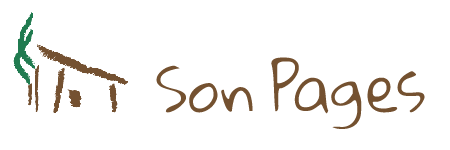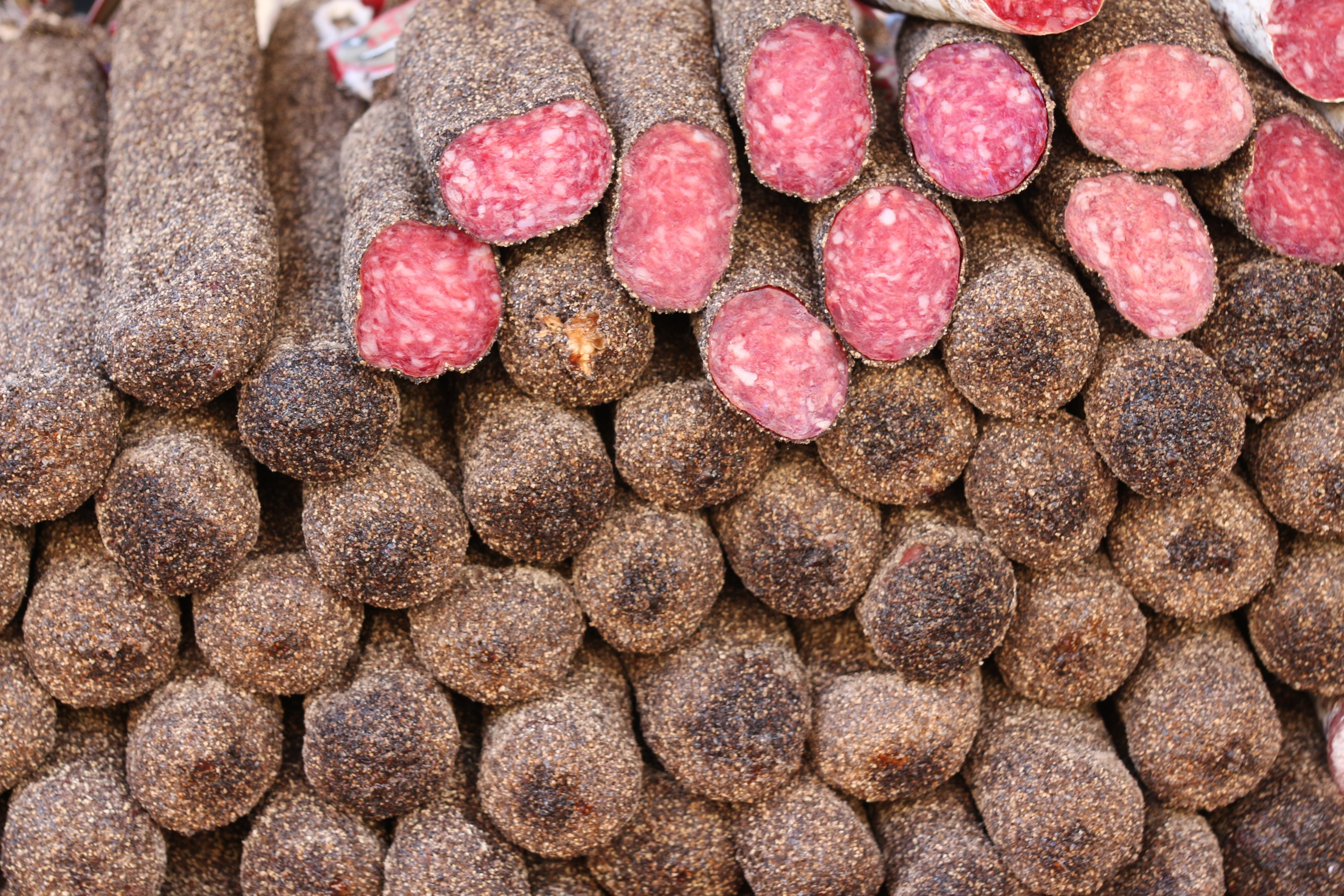Weekly markets
Despite the good selection of restaurants in the area, many guests prefer to cook for themselves at the finca, because there is hardly anywhere else you can spend such lovely days and evenings as on the sunny terrace with a wonderful panoramic view or cosily by the fireplace in winter.
If you want to enjoy the Mediterranean quality of life to the full, you should use your holiday to take a break from standard meals. The food on offer in Mallorca is varied and of high quality, especially if you go shopping at the regional markets. The quality of fresh fruit and vegetables is usually better than in Germany. For bulk shopping and basic supplies, we recommend the supermarkets Hiper Centro in Manacor and Eroski in Felanitx and Portocolom. All have a good selection at the meat, fish and cheese counters. Hiper Centro also has a good bakery with delicious olive bread. Eroski in Porto Colom is also open on Sundays and only closes on a few public holidays.
In addition to ham (Serrano from white pigs, Iberico from black pigs), the variety of salami sausages, goat's cheese and sheep's cheese varieties (curado=old, semi-curado=middle-aged) are typically Spanish. The Manchego from Castile is well-known, but the local cheeses from Menorca are also worth trying. You should pay particular attention to the origin of fish. A lot of fish sold on Mallorca does not really come from the nets of local fishermen. While Atlantic fish might still be acceptable, you should avoid prawns from China. The quality of the local catch is far better and worth the extra price. So if you want to try your hand at your own tapas creations, you will find all the usual ingredients in the supermarket: Dates wrapped in bacon, fried pimientos and aubergines, prawn skewers, olives with cheese, stuffed peppers and much more is quick and easy to prepare. Recipes can be found at www.tapito.de, for example.
Many bakeries in Mallorca now offer wholemeal bread as we know it from Germany. But you should definitely also try the olive bread and the local grey bread, which is sold as a round loaf in various sizes, usually pre-sliced. Although it may not look like it, it is a healthy wholemeal bread (pan integral). In general, the bakeries are a worthwhile destination for local specialities. The ensaïmada, a typical Mallorcan sweet lard pastry, the numerous varieties of empanadas, stuffed pastries, and of course the almond cake are a must-try. Unlike in Germany, Mallorcan bakers often still have a proper bakery, partly because the ensaïmadas have to be absolutely fresh. One tourist attraction is the old Forn de Teatre bakery in Palma, famous for its traditional ensaïmada. However, the local forns, which can be found in almost every town, are in no way inferior.
If you like a good wine, you should take the opportunity to try Mallorcan wines. They are labelled as "Producto Balears" on the wine shelves, even if the cheap mainland wines, the Riojas and Tempranillos, still dominate. Mallorca was a large wine-growing region until 1900, when phylloxera invaded the island. The vines were then replaced with almond and olive trees, as can still be found today. In the meantime, however, many ambitious winegrowers on Mallorca are once again producing top wines. In addition to the international grape varieties Merlot, Syrah, Cabernet and Chardonnay, local autochthonous grape varieties such as Manto Negro and Prensal are also cultivated. There are two designated regions of origin: Binissalem and Pla i Llevant. Some of the well-known large wineries include José Ferrer, Macia Batle, Pere Seda, Biniagual (Verán and Sant Gall brands), Ribas (Cabrera, Soma and Sio brands) and Miquel Gelabert (excellent white wines). However, some of the best wines are produced by small wineries. It is well worth visiting a winery in the region around Felanitx, Porreres and Manacor. Our neighbours from Es Fangar have even been producing organic wines for a few years now.
In addition to fruit and vegetables, you will also find many other products from Mallorcan agriculture at the weekly markets, including countless varieties of jam, honey, cheese, sausage and ham. At the large weekly markets in Santanyi, Pollenca, Son Servera and Inca, there are also many handicrafts, leather goods, clothing, ceramics and spices. There are even chickens, horses, donkeys, cows, goats and sheep at the farmers' market in Sineu.
Every day of the week is market day somewhere nearby: Monday in Manacor, Tuesday in Porreres and Portocolom (there also Sat/Sun), Wednesday in Sineu, Thursday in Inca, Friday in Son Servera, Saturday in Santanyi and Sunday in Porto Cristo, Felanitx and Pollenca. At the big markets, you should be there at 9am and soak up the atmosphere with a leisurely breakfast in a street café before the whole centre is completely overcrowded from 10am and you can no longer get a parking space. However, if you want to haggle, you have to stay until midday, when the traders give the best discounts before they have to pack up their goods again.





